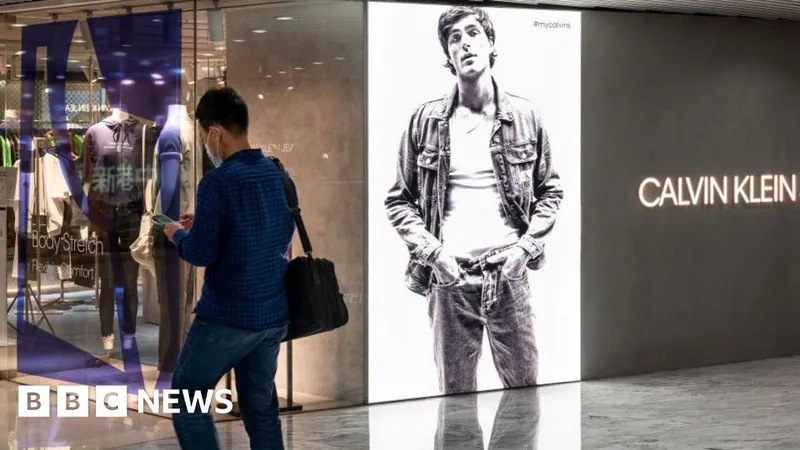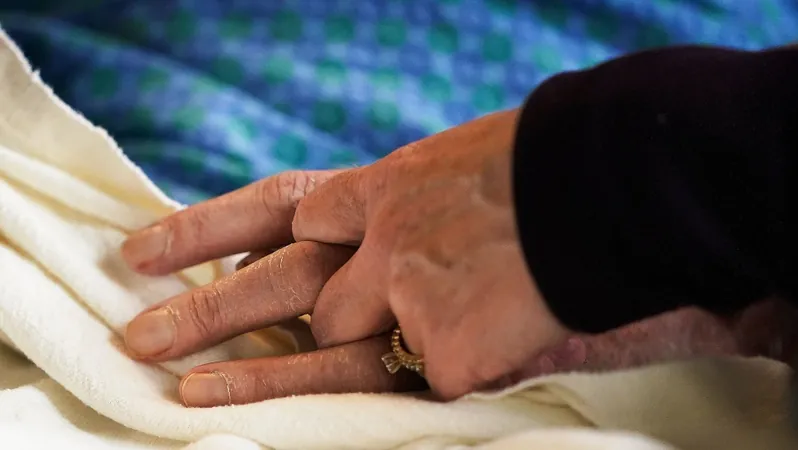
China Launches Investigation into Calvin Klein Parent Company Over Xinjiang Cotton Controversy
2024-09-24
China Launches Investigation into Calvin Klein Parent Company Over Xinjiang Cotton Controversy
In a dramatic escalation of tensions, China has initiated an investigation into PVH Corp, the parent company of iconic American fashion brands Tommy Hilfiger and Calvin Klein. Beijng's scrutiny comes amid increasingly harsh allegations from Western officials and human rights advocates who assert that cotton and other products sourced from the Xinjiang region might be associated with the forced labor practices of the Uyghur ethnic minority.
This move is not merely a routine inspection; it marks an aggressive countermeasure to the U.S. ban imposed in 2021, which aimed to prevent goods from the Xinjiang area from entering American markets due to the troubling reports of labor violations. The Ministry of Commerce of China accused PVH of unjustly "boycotting Xinjiang cotton and other products without any factual basis," highlighting the growing rift over human rights issues and trade practices.
PVH has been given a 30-day window to respond to the authorities, after which it risks being listed as an "unreliable entity." This designation could lead to increased scrutiny and potentially severe penalties, along with damage to its reputation in the lucrative Chinese market. Historically, PVH has maintained a public stance of compliance with the varying regulations of the countries they operate in, including adherence to U.S. laws regarding Xinjiang.
Commenting on the situation, Cullen Hendrix, a senior fellow at the Peterson Institute of International Economics, stated that the precise reasons behind China's sudden investigation into PVH remain ambiguous. However, he believes this could significantly tarnish the firm's image among consumers in China and send a potent message to other Western companies about the repercussions of succumbing to Western scrutiny.
“This is China flexing its economic muscle, reminding firms that their actions in response to Western pressures are being closely monitored,” Hendrix noted. The incident occurs amid rising geopolitical tensions over technology and trade, particularly as the U.S. recently proposed regulations to ban certain technology used in Chinese and Russian automobiles, citing national security concerns.
Moreover, China's "unreliable entity list" has previously been wielded against U.S. companies, particularly defense contractors like Lockheed Martin and Raytheon, for their operations related to Taiwan, indicating a pattern of retaliatory measures that could ensnare various sectors.
As for PVH, the implications of this inquiry could ripple far beyond just brand reputation. The company has already acknowledged potential revenue risks and the reputational fallout of the ongoing dispute over Xinjiang in its annual report. In 2020, it was identified in a study by the Australian Strategic Policy Institute that named several companies allegedly benefiting from labor abuses in Xinjiang. PVH expressed its seriousness about addressing these allegations at the time.
With over 29,000 employees globally and more than 65% of its revenue derived from international markets, PVH's exposure to these tensions is significant. The investigation's outcome could reshape the dynamics of international retail in China, one of the world's largest consumer markets, as global companies navigate the treacherous waters of geopolitics and ethical sourcing in their supply chains.
In summary, the clash over Xinjiang cotton not only threatens the operational viability of PVH but also serves as a cautionary tale for Western firms that may find themselves caught between the competing demands of political and ethical considerations in the global marketplace.









 Brasil (PT)
Brasil (PT)
 Canada (EN)
Canada (EN)
 Chile (ES)
Chile (ES)
 España (ES)
España (ES)
 France (FR)
France (FR)
 Hong Kong (EN)
Hong Kong (EN)
 Italia (IT)
Italia (IT)
 日本 (JA)
日本 (JA)
 Magyarország (HU)
Magyarország (HU)
 Norge (NO)
Norge (NO)
 Polska (PL)
Polska (PL)
 Schweiz (DE)
Schweiz (DE)
 Singapore (EN)
Singapore (EN)
 Sverige (SV)
Sverige (SV)
 Suomi (FI)
Suomi (FI)
 Türkiye (TR)
Türkiye (TR)